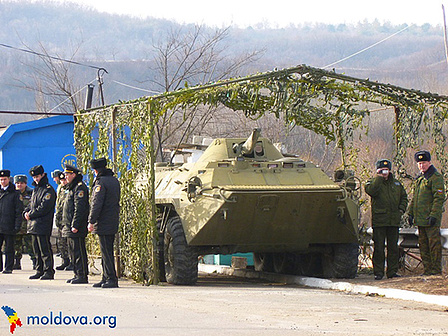The Swiss OSCE Chairmanship previously said in a statement for Moldova.ORG that it is about time to discuss the political status of the secessionist region, despite of reluctance among some actors involved in the 5+2 resolution format.
“We believe that a political solution must be addressed even if there currently is reluctance to consider political and security issues in the 5+2 talks,” the statement from Bern said.
A week after these comments were made, Moldovan Prime Minister Iurie Leanca told a Russian newspaper that his Government is ready to grant Transnistria a “wider autonomy.”
“We are ready to provide a wider autonomy but in a way that the country is unified and functional,” Iurie Leanca told Vedomosti newspaper.
The statement sparked criticism among political experts.
Washington DC-based analyst, Vlad Spanu told Moldova.ORG that the comments made by Iurie Leanca are “ill thought.” According to him, the political elite in Chisinau either do not understand the conflict, or they do not have the institutional and intellectual capacity to pursue other options.
“It is much harder for them to work on a daily basis with Moldovan citizens on East bank of the Nistru, in Tighina (Bender) on the West bank, but controlled by Tiraspol secessionists, than sit once in a while at the negotiation table and discuss the “status”,” Vlad Spanu said.
The expert argues that people in the region have their rights violated and are constantly harassed by the self-appointed authorities.
“Children and their parents, teachers at the Romanian-language schools (both in Latin and Cyrillic alphabets) who are deprived of their right to education in the mother tongue, farmers whose private property rights are violated should get much more assistance from the Moldovan government. The infrastructure - schools, roads, libraries, hospitals – should be developed in the localities on the East bank, subordinated to Chisinau,” Mr. Spanu added.
He admits that such a scenario certainly requires sound coordinated policies, planning, money and implementation. But he argues that the legitimate authorities in Chisinau should primarily focus on such issues, and spend less time “contemplating the “special status” for the so-called Transnistria Republic.”
“Instead of working hard bilaterally and multilaterally to remove obstacles to reintegrate the Republic of Moldova – the presence of Russian troops and munitions, Russian intelligence officers that are the shield of the separatist regime installed in Tiraspol by the Russian government – Moldovan politicians and other bureaucrats in international organizations are dreaming of an “easy fix” – the “special status” that would dysfunction the Moldovan state if implemented,” Vlad Spanu concluded.




